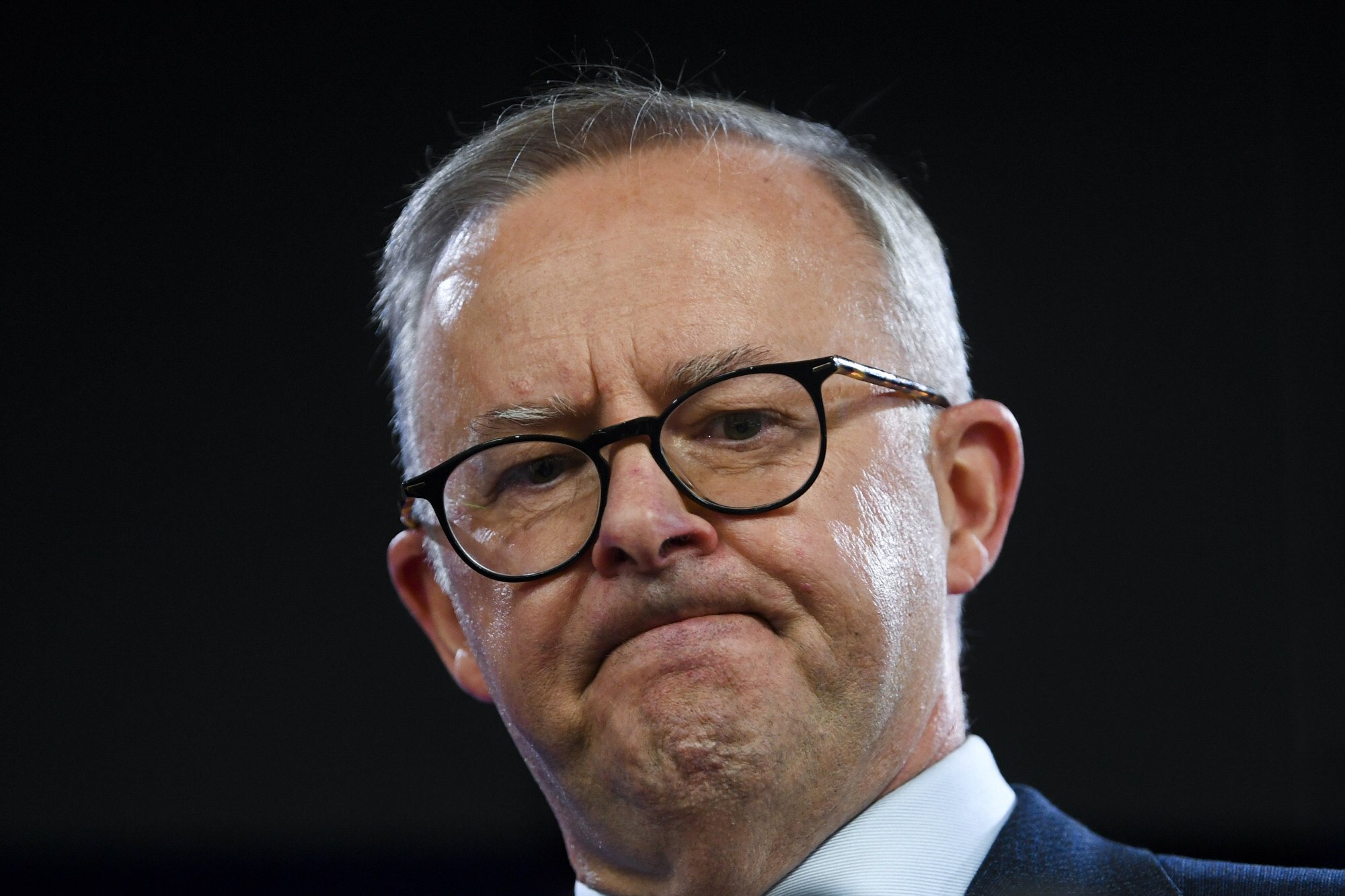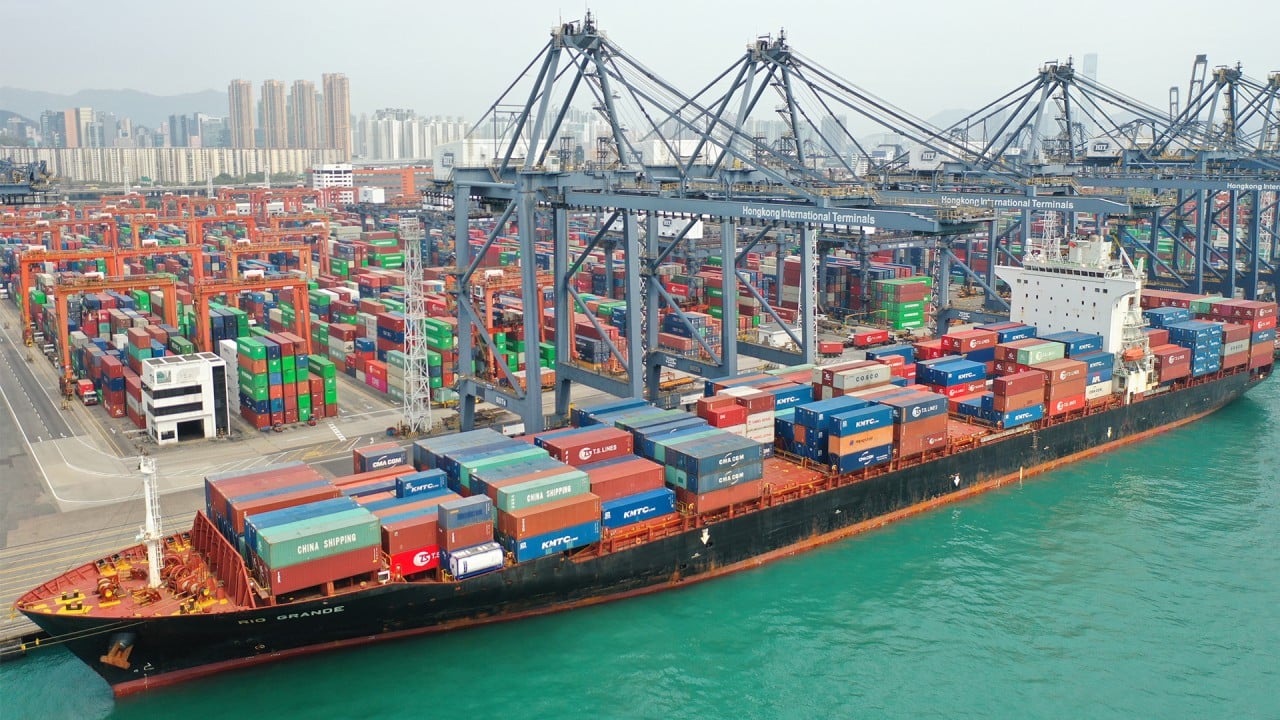
Australia’s Scott Morrison goes full throttle on anti-China rhetoric to boost re-election bid
- The prime minister painted the opposition Labor Party as pro-Beijing and called his main rival Anthony Albanese weak on national security
- Morrison’s attack coincides with surveys showing his Liberal National Coalition government on track for a major defeat in an election that must be held by May 21
The 53-year-old leader has recently painted the opposition Labor Party as pro-China, calling his main rival Anthony Albanese weak on national security and labelling another lawmaker a “Manchurian candidate” – a comment he later withdrew. Labor has dismissed Morrison’s attacks as a desperate attempt to ensure his political survival.
The escalation in anti-China rhetoric coincides with opinion polls showing Morrison’s centre-right Liberal National Coalition government on track for a major defeat in an election that must be held by May 21. A Newspoll survey this month found the Coalition trailing Labor by 10 percentage points, which would translate into a loss of as many as 21 seats for a government that currently holds a slim majority.
“We don’t often have elections bent on foreign policy, but the polls show the government has ground to make up,” said Natasha Kassam, director of the Public Opinion and Foreign Policy programme at Sydney’s Lowy Institute. “And national security has always been more comfortable campaigning space for the Coalition than for Labor.”
Who’s the mystery ‘Mr Ji from China’ in Australian PM’s WeChat riddle?
As a result, opinions of China have deteriorated. In 2017, less than a third of Australians had a negative view of China, according to Pew Research. By 2020, that number had soared to 81 per cent.
Morrison’s poll numbers began to plummet after an Omicron outbreak in recent months saw testing shortages and empty supermarket shelves across the country.
Similar anti-China strategies have also failed to work out for conservative candidates in recent elections in the US and Canada. Former president Donald Trump and challenger Erin O’Toole both lost after accusing their opponents of being too weak to handle Beijing.
What’s more, polls show the China issue may not even help Morrison. A survey by Essential polling published on February 22 found more people trusted Labor to handle the relationship with China than the government by an 11-point margin.
While 61 per cent of the respondents said Australia’s relationship with China was “a complex relationship to be managed,” only 26 per cent said China was a “threat to be confronted.”
“That polling does show that the government’s got to be probably a lot more careful than it has been so far,” said Michelle Grattan, a professorial fellow at the University of Canberra who has written about the country’s politics for decades, including currently for The Conversation.
Tough, but no wolf: can China’s new envoy to Australia make a difference?

The concerns go beyond the election itself. At a recent New South Wales by-election, Labor candidate Jason Li said he and his team were subjected to a large number of racist comments.
Morrison has been quick to draw a clear distinction between Beijing and the local Chinese community. He said in a recent interview that “we love the Chinese people and particular Chinese-Australians,” adding they were some of the country’s most patriotic citizens.
Yet Chinese-Australians are growing more concerned by the campaign rhetoric, according to Osmond Chiu, research fellow at the Per Capita research group in Melbourne.
“One of the big concerns is that its being done in a way that treats Chinese-Australians as collateral damage,” he said. “I don’t think there’s really an appreciation of that.”


